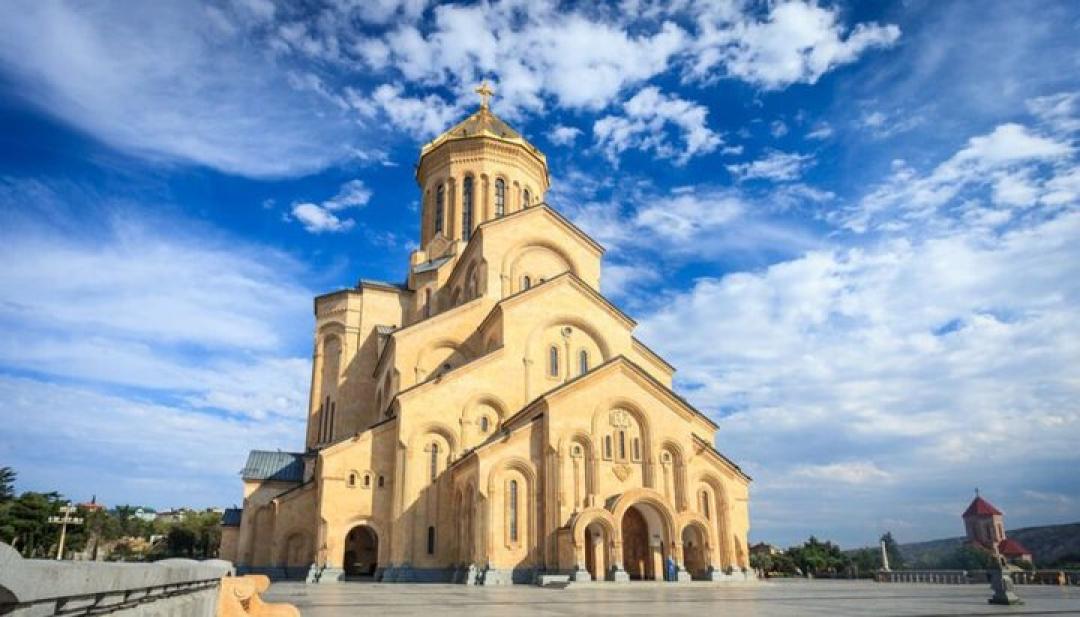
Georgia successfully celebrates Easter despite tensions between Government and Church

On 20 April, Georgian Prime Minister Giorgi Gakharia thanked Georgian citizens, doctors, police and the army via social media for their coordinated actions during the celebrations of Orthodox Easter in the country.
“I would like to thank each person who stayed at home for Easter. Also, thanks to those who followed social distancing rules in the churches. We have a difficult battle ahead, but with such responsibility, attitude and unity, we will definitely overcome it. This is how a successful state is built: with individual civic responsibility, common sense and joint efforts! In order to go back to normal life, we have to be patient and stay at home,” he noted.
His words referred to the fact that an unusually small number of parishioners gathered in churches throughout the country on Easter night to participate in the liturgy due to the coronavirus pandemic, with a few exceptions who also upheld the rules of social distancing.
The liturgy for Easter started on 18 April around 11 p.m. at Trinity Cathedral in Georgian capital of Tbilisi and some other churches throughout the country. Some of the churches refrained from gathering on 18 April and instead held Easter service on 19 April after 6 p.m. Those who stayed home gathered at their balconies at 12 a.m. and lit candles to celebrate Easter, shouting at their neighbours: “Christ is Risen! Indeed, He is Risen.”
During the Easter period, the Georgian Ministry of Internal Affairs reported 230 incidents of breaching the state emergency regulations and curfew. Law enforcers fined 71 civilians for breaching the curfew regulations, 68 civilians were fined for a public gathering of more than 3 people and violation of the two-meter social distancing rule and 91 persons were also fined for violating rules of transporting the passengers and movement by car.
Major tensions arose between government officials and representatives of the Georgian Patriarchate prior to Easter. On 15 April, the Georgian government and the Patriarchate reached a deal that the traditional Easter service on Saturday night will be held with police supervision despite the current curfew. Within the framework of the state of emergency, restrictions on visiting cemeteries in Georgian cities was also imposed for 10 days. The Deputy Head of the National Center for Disease Control Paata Imnadze warned parishioners not to attend services in churches ahead of the Easter holidays. “We will not be able to count the coffins in Georgia; do we want this? Stay at home!” he said. Georgian Archbishop Jacob replied to this statement, “I respect Paata Imnadze, but he should better count how many infected patients we have. Do you want to focus on the Church alone?! We don’t even have real data on the number of infected patients in the country! Ask the doctors about it,” he said (Caucasus Watch reported).
On 16 April, the Georgian government banned all private vehicle traffic throughout the country until the end of the state of emergency, but the Church stated that those rules did not apply to their personnel. However, not all of the Georgian clergy stood united in opposing the government's measures. 13 Georgian clergymen issued a joint statement, saying they will suspend liturgical activities for the duration of the coronavirus pandemic, and calling on people to perform the spiritual liturgy in the service of the society as a whole (Caucasus Watch reported).
The current tally of infected persons in Georgia stands at 399, with 4 reported deaths.
See Also


Mirzoyan Meets US Deputy Assistant Secretary Joshua Huck

Azerbaijani President Holds Talks with UAE and German Business Delegations on Economic Cooperation

Grigoryan Confirms Armenia’s Readiness to Dissolve OSCE Minsk Group Upon Peace Treaty Signing

Azerbaijani Official Warns of Ecological Risks to Caspian Sea, Similar to Lake Urmia and Aral Sea

